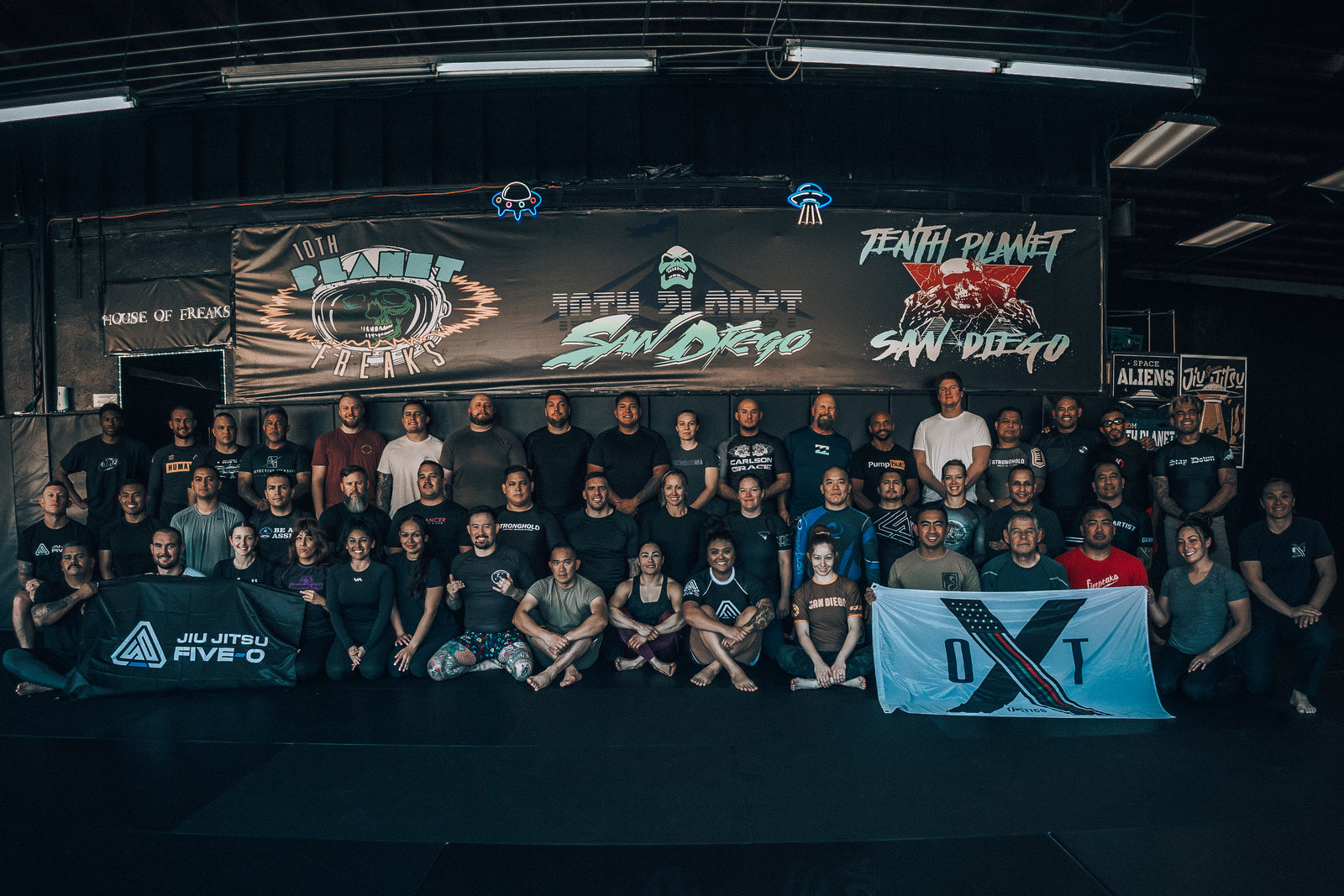How Jiu Jitsu Training Can Reduce Use-of-Force Incidents in Policing

The landscape of law enforcement is constantly evolving, and with it, the methods and techniques employed in police training are also undergoing significant transformation. One of the most promising developments in recent years has been the integration of Brazilian Jiu Jitsu training into police academies and ongoing training programs. In this post, we explore how the "Gentle Art" can help move our industry forward and get away from the old, useless tactics usually involved with traditional "DT" training.
Understanding the Impact of Jiu Jitsu Training on Police Work
Jiu Jitsu focuses on grappling and ground fighting, using leverage, joint locks and positional control to dominate your opponent. For police officers, the techniques learned in Jiu Jitsu training can be invaluable in situations where they have to control uncooperative subjects or defend themselves from common attacks like punches, headlocks and chokes.
The application of Jiu Jitsu in police work offers several benefits:
- Enhanced Control: Jiu Jitsu provides officers several concepts and techniques to control someone, without the need for strikes or intermediate weapons. This leads to less tool reliance and a lower risk of escalated force and injuries.
- Increased Officer Confidence: With proficient training, officers feel more confident in their ability to go hands-on, which can lead to calmer and more controlled responses during use-of-force encounters.
- Improved Decision-Making: Jiu Jitsu teaches you how to be calm under pressure, which can help officers make better decisions in high-stress situations.
The Role of Jiu Jitsu Training in Reducing Use-of-Force Incidents
Incorporating Jiu Jitsu into police training programs has shown a direct correlation with a decrease in use-of-force incidents. This is because Jiu Jitsu equips officers with more options to de-escalate a situation without resorting to tools like baton, Taser, or firearm, unless absolutely necessary.
Jiu Jitsu: A Key Component in Modern Police Training
Police departments that have integrated Jiu Jitsu into their regular training schedule report not only a reduction in use-of-force incidents but also a decrease in injuries to both officers and suspects. This is a testament to the effectiveness of the techniques and the way they can change the dynamics of police encounters.
Jiu Jitsu training for police typically includes:
- Drilling: Repetitive practice of positions and techniques to ensure they become second nature.
- Positional Training: Simulated situations for common scenarios, where officers can apply control and defense techniques against resisting opponents, in a safe, regulated environment to avoid injury.
- Pressure-Testing: Exercises that place officers in high-adrenaline situations to practice maintaining composure and applying techniques correctly.
The Future of Police Training with Jiu Jitsu
As the public calls for police reform and a safer use-of-force encounters, Jiu Jitsu training presents a viable solution. It's a proactive approach that not only addresses public concern but also protects officers and the individuals they deal with on the street. The future of police training may very well hinge on the wider adoption of these techniques.
The integration of Jiu Jitsu into police training programs is more than a trend; it's a strategic move towards safer and more practical law enforcement. By providing officers with the skills to handle confrontations with confidence and control, Jiu-Jitsu training is setting a new standard in policing—one that could lead to a significant reduction in use-of-force incidents across the board.
For police departments looking to update their training programs, incorporating Jiu Jitsu could be the key to fostering a safer environment for both officers and the communities they serve.



